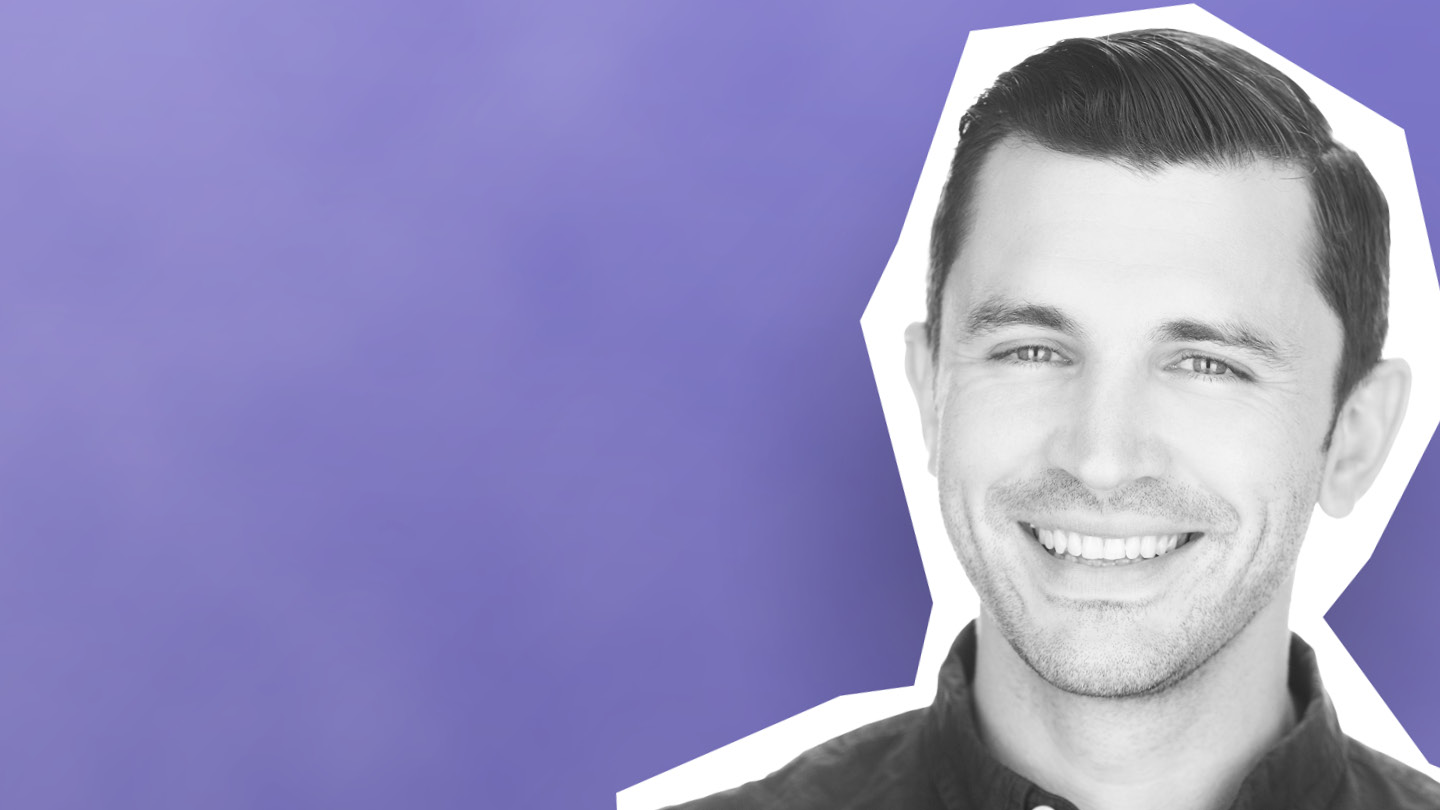Alex Birkett will cut things out of his life to get where he wants to go.
He points out that the word “decide” comes from the Latin word “decidere,” a combination of words meaning “off” and “cut.”
“Commitment and deciding inherently require cutting off alternative paths and optionality,” he explains.
Alex’s career path illustrates this principle. After stints at companies such as CXL and HubSpot, he left the corporate world to co-found Omniscient Digital, a content and SEO agency.
What Is Surround-Sound Strategy?
While still at HubSpot, Alex developed a net new acquisition channel called the “surround-sound strategy.” He took the concept from the book-launch strategy of Tim Ferriss, who created a map — or nodes — of like-minded media publications and then tried to get coverage from all of them within a short time span.
Basically, when you hear (or see) a message enough, you’re moved to learn more — and closer to a purchasing decision.
Alex took that concept and applied it to search engine optimization. If you’re searching for the best air fryer on Google, you’re going to trust the ones that you see over and over again. Surround-sound SEO gets you there by mapping out high-intent keyword and customer journey touch points and ensuring you appear favorably in all of those places.
“You’re essentially toggling up the ‘frequency’ that someone hears or sees your message — in advertising, reach and frequency are the variables you control,” Alex says.
“What Is Scarce Is Valuable”
Throughout his career, Alex has asked “the toughest business questions he could think of” and searched for answers.
That hasn’t changed. These days, his most pressing concern is identifying how exactly to market a marketing agency. “I’m questioning all my assumptions and trying to get to first principles so we can strip our marketing down to what truly moves the boat,” he admits.
Alex knows that, to create value in this fast-paced industry, Omniscient must continue outpacing the industry. “I’m constantly losing sleep over ways to do that,” he says.
Technology moves so fast, Alex says, that any advantage has “a very short window of alpha where you have access to a tool or tactic that someone else competing with you doesn’t.” This small window applies to keyword research, content planning and optimization, and even generative artificial intelligence (AI).
“Anything someone else can replicate easily isn’t a competitive advantage; what is scarce is a competitive advantage. What is scarce is what is valuable. So what’s scarce, and how do I operationalize that into a service and market it?” Alex says. “That’s the big question I’m asking all the time.”
What isn’t easily replicable? For Alex, that can be providing specialist writers and subject matter experts, helping companies break through internal bottlenecks, or creating long-term organizational and culture change.
Doing this work well at an agency requires strong, supportive leadership. Omniscient has about a dozen employees, and Alex wants to help them develop into their best professional and personal selves.
“A lot of this is simply day-in-day-out leadership,” he says. “You clearly communicate vision and expectations, help outline scary large projects, get out of the way when it comes to execution, and support in ways that don’t overshadow someone’s own autonomy or creativity.
“It comes down to believing in someone’s capabilities even when they’re unsure, and creating a culture where it’s safe to fail as long as you’re honest and learning and striving,” Alex continues.
How Creatives Should Use AI Tools
How does Alex see the roles of marketers, writers and other creatives shifting with programs like Writer.com, ChatGPT and Jasper?
The short answer: Not much. Alex uses AI tools mainly to gain traction when starting a creative project. We all know how hard it can be to face a blank page, and generative AI tools help with that.
However, Alex believes it’s best to view AI offerings as tools rather than expect them to create final-draft creative products (he’s even created a Jasper case study at Omniscient). “Then, step back and realize the things that are scarce (and therefore valuable) are strategic thought and creative thought. Now it’s fun to be a creative, yeah?” Alex says.
What AI can’t do yet is replace the power of human creativity and taste.
“At the end of the day, taste matters a ton and it’s hard to train. This is true for strategists, writers, editors — everyone,” Alex says. “I’ve worked with people who have great taste and authentic style; I’ve also worked with people who seem to robotically reverse-engineer what ‘works,’ and it feels hollow all the way through. Good taste is what makes good content, no matter what tools exist or will exist.”
P.S. Want more of Alex’s perspective? Check out his podcast, The Long Game, in which he shares personal and professional stories that illustrate the power of long-term thinking.






